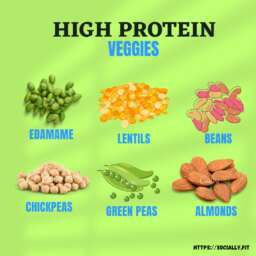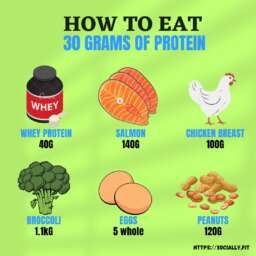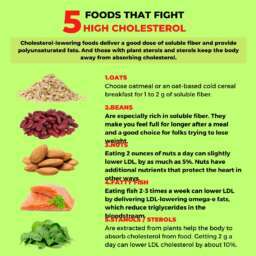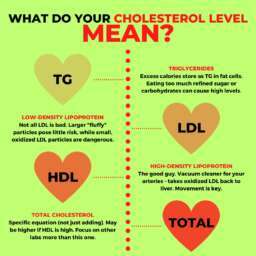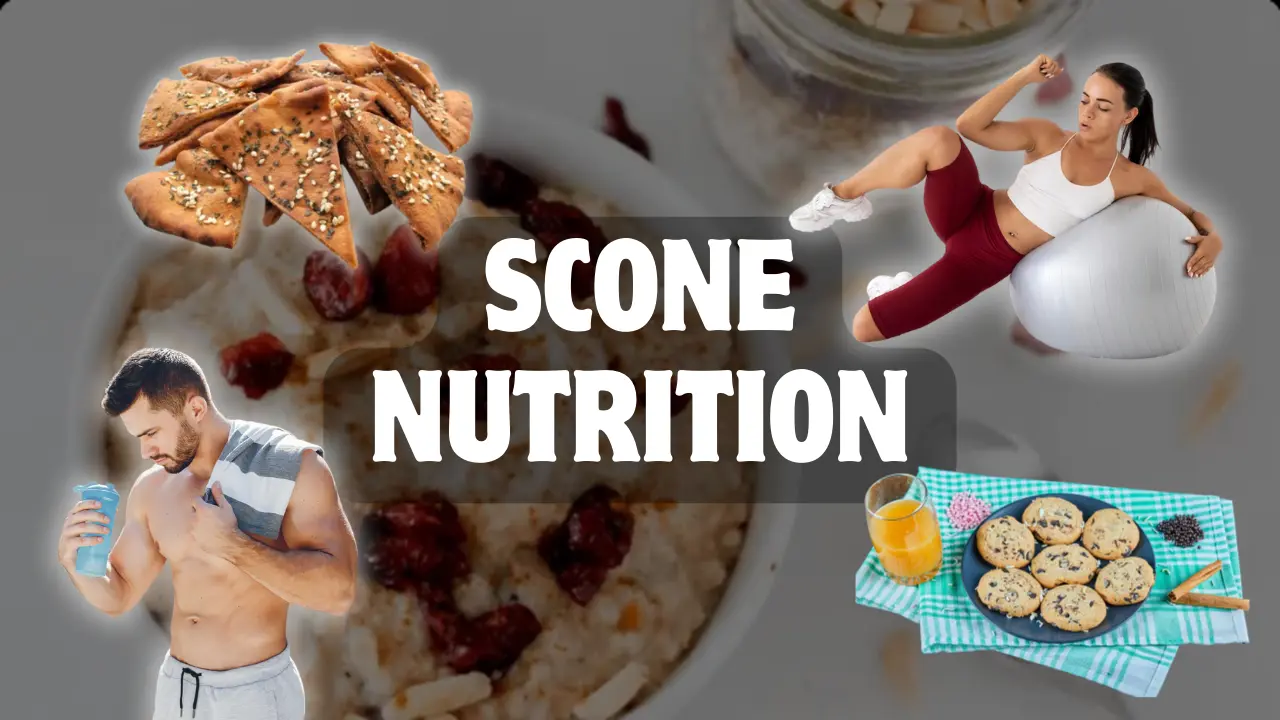Understanding Scone Nutrition: Debunking Myths and Making Informed Choices.
Discover the truth about scone nutrition and learn how to make healthier choices with our guide. Explore myths debunked and tips for enjoying scones while maintaining your health goals.
Introduction:

Scones, a beloved treat often enjoyed during teatime or breakfast, hold a special place in many people’s hearts. Beyond their delightful taste and texture, understanding the nutritional aspects of scones is crucial for making informed dietary choices. In this guide, we delve into the world of scone nutrition, uncovering both their health benefits and potential drawbacks.
What Are Scones?
Scones are baked goods that originated in Scotland, traditionally made with flour, butter, milk, and sugar. They come in various flavors and can be sweet or savory, often complemented with toppings like jam, cream, or cheese.
Nutritional Breakdown of Scones

- Choose Whole Grain Flour: Opt for scones made with whole wheat or oat flour to increase fiber content and promote fullness.
- Limit Added Sugars: Select scones with minimal added sugars to avoid unnecessary calories and blood sugar spikes.
- Watch Portion Sizes: Enjoy smaller servings of scones to manage calorie intake and prevent overconsumption.
- Pair with Protein: Pair your scone with a protein source like Greek yogurt or eggs to balance out the meal and promote satiety.
- Add Nutritious Add-Ins: Enhance the nutritional value of your scone by adding fruits, nuts, or seeds for extra vitamins, minerals, and antioxidants.
- Opt for Healthy Fats: Choose scones made with healthier fats like olive oil or avocado instead of butter or shortening.
- Homemade is Best: Make your own scones at home to control ingredients and customize flavors according to your dietary preferences.
- Choose Low-Fat Options: Select scones with lower fat content to reduce overall calorie intake and promote heart health.
- Balance with Vegetables: Enjoy scones alongside vegetables or a salad to add fiber, vitamins, and minerals to your meal.
- Stay Hydrated: Drink plenty of water with your scone to aid digestion and prevent dehydration.
Scone Nutrition
Health Benefits of Scones

- Source of Energy: Scones provide a quick source of energy due to their carbohydrates content, making them a convenient option for breakfast or a midday snack.
- Dietary Fiber: Scones made with whole grain flour can be a good source of dietary fiber, promoting digestive health and helping you feel fuller for longer periods.
- Vitamins and Minerals: Depending on the ingredients used, scones can contain essential nutrients such as calcium, iron, and B vitamins, contributing to overall health and well-being.
- Convenience: Scones are portable and easy to grab on the go, making them a convenient choice for busy individuals who need a quick and satisfying snack.
- Versatility: Scones come in a variety of flavors and can be customized with different add-ins like fruits, nuts, or spices, allowing for versatility in taste and nutritional content.
- Promotes Relaxation: Enjoying a warm scone with a cup of tea or coffee can provide a moment of relaxation and comfort, helping to reduce stress and improve mood.
- Boosts Creativity: Baking scones can be a creative outlet, allowing individuals to experiment with different ingredients and flavor combinations, stimulating the mind and promoting creativity.
- Social Connection: Sharing scones with friends or family members fosters social connection and strengthens relationships, promoting emotional well-being and a sense of belonging.
Scone Nutrition
Potential Drawbacks

- High Calorie Content: Traditional scones can be calorie-dense, which may contribute to weight gain if consumed in excess.
- Added Sugars: Many commercially prepared scones contain high amounts of added sugars, which can lead to blood sugar spikes and cravings.
- Processed Ingredients: Store-bought scones often contain refined flour and unhealthy fats, lacking in nutritional value and contributing to inflammation and other health issues.
- Lack of Nutrient Density: Despite providing energy, scones may lack essential nutrients such as vitamins, minerals, and antioxidants found in whole foods like fruits and vegetables.
- Low Fiber Content: Scones made with refined flour may lack dietary fiber, which is important for digestive health and may lead to constipation or other gastrointestinal issues.
- Potential Allergens: Scones containing ingredients like wheat, dairy, nuts, or eggs may trigger allergic reactions in some individuals, posing a risk to their health.
- Blood Sugar Spikes: The combination of refined carbohydrates and added sugars in scones can cause rapid spikes in blood sugar levels, leading to energy crashes and increased hunger.
- Weight Management Challenges: Consuming calorie-dense scones regularly without balancing them with nutrient-dense foods may make it difficult to maintain a healthy weight.
- Impact on Dental Health: Scones high in sugars can contribute to tooth decay and cavities, especially when consumed frequently without proper oral hygiene.
- Overconsumption: Due to their delicious taste and convenience, it’s easy to overindulge in scones, leading to excessive calorie intake and potential negative health consequences.
Scone Nutrition
How to Make Healthier Scones
Making healthier scones is entirely feasible with a few simple adjustments to traditional recipes. First and foremost, consider swapping out refined white flour for whole grain flour, such as whole wheat or oat flour. These alternatives offer more fiber and nutrients, promoting better digestion and providing a slower release of energy, which can help prevent blood sugar spikes.
Secondly, reduce the amount of added sugars in your scone recipe. Instead of using refined white sugar, opt for natural sweeteners like honey, maple syrup, or mashed bananas. Not only do these alternatives add sweetness, but they also contribute additional nutrients and antioxidants to your scones. Alternatively, you can simply decrease the amount of sugar called for in the recipe without sacrificing taste.
Lastly, focus on incorporating nutritious add-ins into your scones. Instead of relying solely on butter for flavor and texture, consider adding fruits like blueberries, cranberries, or chopped apples for a burst of sweetness and extra fiber. You can also mix in nuts, seeds, or oats for added crunch and protein. By making these simple substitutions and additions, you can transform your scones into a healthier treat without sacrificing taste or texture.
Scone Nutrition
How does the nutritional content of a traditional scone compare to that of a bran muffin?
| Nutrient | Traditional Scone (1 medium) | Bran Muffin (1 medium) |
|---|---|---|
| Calories | 200-300 | 150-250 |
| Carbohydrates (g) | 30-40 | 25-35 |
| Fiber (g) | 1-2 | 3-5 |
| Sugars (g) | 10-20 | 5-15 |
| Protein (g) | 3-5 | 4-6 |
| Total Fat (g) | 8-12 | 5-8 |
| Saturated Fat (g) | 4-6 | 1-3 |
| Trans Fat (g) | 0 | 0 |
| Cholesterol (mg) | 20-30 | 0-10 |
| Sodium (mg) | 200-300 | 150-250 |
Analysis:
- Calories: Scones tend to have slightly higher calorie counts compared to bran muffins.
- Carbohydrates: Scones typically contain more carbohydrates than bran muffins, contributing to their higher calorie content.
- Fiber: Bran muffins are generally higher in fiber than scones, promoting better digestion and providing a greater feeling of fullness.
- Sugars: Scones often contain more added sugars than bran muffins, which can lead to blood sugar spikes and cravings.
- Protein: Both scones and bran muffins provide a moderate amount of protein, supporting muscle growth and repair.
- Total Fat: Scones tend to have slightly higher total fat content than bran muffins, contributing to their richer texture and flavor.
- Saturated Fat: Scones may contain more saturated fat than bran muffins, which can impact heart health if consumed in excess.
- Trans Fat: Neither scones nor bran muffins typically contain trans fats, which are considered unhealthy fats.
- Cholesterol: Scones may contain small amounts of cholesterol from ingredients like butter, while bran muffins are usually cholesterol-free.
- Sodium: Both scones and bran muffins can contribute to daily sodium intake, with scones potentially containing slightly higher levels.
Scone Nutrition
Tips for Choosing Healthier Options:
- Focus on Fiber: Opt for bran muffins for a higher fiber content, promoting better digestion and satiety.
- Watch Sugar Intake: Choose scones with minimal added sugars to avoid blood sugar spikes and cravings.
- Mindful Portioning: Control portion sizes to manage calorie intake and prevent overconsumption of either scones or bran muffins.
- Consider Nutrient Density: Look for scones or bran muffins made with whole grain flours and nutritious add-ins like fruits and nuts for added vitamins and minerals.
- Hydration: Drink plenty of water with your choice of baked goods to aid digestion and prevent dehydration.
Scone Varieties and Their Nutritional Variances

- Classic Plain Scone: Traditional plain scones are typically made with flour, butter, sugar, and milk. They tend to be moderate in calories and lower in fiber compared to other varieties.
- Blueberry Scone: Blueberry scones are infused with fresh or dried blueberries, adding natural sweetness and antioxidants. They may contain slightly more sugar and calories but also offer additional vitamins and minerals.
- Whole Wheat Scone: Scones made with whole wheat flour provide more fiber and nutrients compared to those made with refined white flour. They offer better satiety and digestive benefits.
- Chocolate Chip Scone: Chocolate chip scones are indulgent treats loaded with added sugars and calories. They are higher in fat and sugar content but can satisfy sweet cravings.
- Cranberry Orange Scone: These scones combine the tartness of cranberries with the citrusy flavor of orange zest. They are rich in vitamin C and antioxidants but may contain added sugars.
- Savory Cheese Scone: Savory scones made with cheese, herbs, and spices offer a unique flavor profile. They are higher in protein and fats, making them a more substantial option for savory cravings.
- Oatmeal Raisin Scone: Oatmeal raisin scones are hearty and nutritious, packed with fiber from oats and natural sweetness from raisins. They provide sustained energy and promote better digestion.
- Almond Flour Scone: Scones made with almond flour are gluten-free and lower in carbohydrates. They are higher in healthy fats and protein, suitable for those with gluten sensitivities or following a low-carb diet
Scone Nutrition
Scone Nutrition Compared to Other Breakfast Options
| Breakfast Option | Calories | Carbohydrates | Fiber | Protein | Total Fat | Sugars |
|---|---|---|---|---|---|---|
| Scone | 200-300 | 30-40g | 1-2g | 3-5g | 8-12g | 10-20g |
| Bagel | 250-350 | 50-60g | 2-4g | 8-12g | 1-4g | 5-10g |
| Greek Yogurt Parfait | 150-250 | 20-30g | 2-4g | 10-15g | 2-5g | 10-20g |
| Oatmeal | 150-300 | 25-40g | 4-8g | 5-10g | 2-5g | 0-10g |
| Whole Wheat Toast | 150-200 | 20-30g | 3-5g | 5-8g | 2-4g | 2-5g |
| Fruit Smoothie | 200-350 | 40-60g | 2-4g | 5-10g | 2-5g | 30-50g |
| Egg and Veggie Omelette | 250-400 | 5-10g | 2-4g | 15-20g | 15-25g | 2-5g |
| Avocado Toast | 200-300 | 25-35g | 5-8g | 5-10g | 10-15g | 2-5g |
| Breakfast Burrito | 300-450 | 30-50g | 4-6g | 15-25g | 10-20g | 2-5g |
| Granola Bar | 150-250 | 20-30g | 2-4g | 5-10g | 6-10g | 10-20g |
Analysis:
- Calories: Scones, bagels, and breakfast burritos tend to have higher calorie counts, while options like Greek yogurt parfait and oatmeal offer lower-calorie alternatives.
- Carbohydrates: Bagels and fruit smoothies contain higher carbohydrate content, whereas options like avocado toast and egg and veggie omelette provide fewer carbs.
- Fiber: Oatmeal, whole wheat toast, and avocado toast are rich in fiber, promoting better digestion and satiety compared to other options.
- Protein: Greek yogurt parfait, egg and veggie omelette, and breakfast burrito are excellent sources of protein, supporting muscle growth and repair.
- Total Fat: Avocado toast and breakfast burrito contain higher total fat content, while options like oatmeal and Greek yogurt parfait are lower in fat.
- Sugars: Fruit smoothies and granola bars tend to be higher in sugars, whereas options like egg and veggie omelette and avocado toast provide minimal added sugars.
Consider these nutritional aspects when choosing your breakfast to ensure a balanced and satisfying meal.
Scone Nutrition
Scone Nutrition for Different Dietary Needs
- Gluten-Free Scones: Scones made with gluten-free flours like almond flour or coconut flour are suitable for individuals with gluten sensitivities or celiac disease.
- Vegan Scones: Vegan scones are made without any animal products, such as butter, milk, or eggs. Instead, they use plant-based alternatives like coconut oil, almond milk, or flaxseed meal, catering to individuals following a vegan lifestyle.
- Low-Carb Scones: Scones made with almond flour or coconut flour are naturally lower in carbohydrates compared to traditional wheat-based scones.
- Paleo Scones: Paleo scones adhere to the principles of the paleolithic diet, which excludes grains, dairy, and processed ingredients. These scones typically use almond flour, coconut flour, and natural sweeteners like honey or maple syrup, catering to those following a paleo lifestyle.
- Diabetic-Friendly Scones: Scones with a lower glycemic index, such as those made with whole grain flours or sweetened with natural sweeteners like stevia or erythritol, are suitable for individuals with diabetes.
- High-Fiber Scones: Scones made with whole grain flours or added fiber-rich ingredients like oats, bran, or chia seeds are high in fiber. They promote better digestion, regulate blood sugar levels, and support heart health.
- Nut-Free Scones: Nut-free scones are made without any nuts or nut-based ingredients, making them safe for individuals with nut allergies or sensitivities.
Scone Nutrition
Scone Nutrition for Weight Management
When considering scone nutrition for weight management, it’s essential to focus on portion control and ingredient choices. Opting for smaller-sized scones or cutting larger ones in half can help manage calorie intake while still enjoying this delicious treat. Additionally, choosing scones made with whole grain flours and natural sweeteners, such as honey or maple syrup, can provide more fiber and nutrients while reducing added sugars.
Furthermore, incorporating scones into a balanced meal or snack can aid in weight management. Pairing a scone with protein-rich foods like Greek yogurt or cottage cheese can increase satiety and prevent overeating later in the day. Including plenty of fruits or vegetables alongside your scone can also add volume and nutrients to your meal without significantly increasing calorie intake. By making mindful choices and balancing your scone consumption with other nutritious foods, you can enjoy scones as part of a healthy diet conducive to weight management.
Scone Nutrition
Incorporating Scones into a Balanced Diet
- Pair with Protein: Enjoy a scone alongside protein-rich foods such as Greek yogurt, cottage cheese, or a boiled egg for a balanced and satisfying breakfast or snack.
- Add Fruits or Vegetables: Serve scones with a side of fresh fruit salad or sliced vegetables to increase fiber, vitamins, and minerals in your meal.
- Include Healthy Fats: Spread a thin layer of almond butter or avocado on your scone to add healthy fats, promoting satiety and supporting heart health.
- Balance with Greens: Serve a scone alongside a salad or vegetable soup for a balanced meal that includes fiber, antioxidants, and essential nutrients.
- Create a Scone Sandwich: Use scones as the base for a sandwich by adding lean protein such as turkey or chicken, along with lettuce, tomato, and mustard for a nutritious and satisfying meal.
- Make it a Dessert: Enjoy a smaller portion of scone as a dessert after a meal, paired with a dollop of Greek yogurt or a drizzle of dark chocolate for added flavor without excessive calories.
- Pair with Tea or Coffee: Enjoy a scone with a cup of herbal tea or black coffee for a cozy and comforting snack that satisfies cravings without compromising nutritional balance.
- Go Savory: Experiment with savory scone recipes by adding ingredients like cheese, herbs, or vegetables to create a nutritious and flavorful alternative to sweet scones.
Scone Nutrition
In terms of calorie density, are scones more similar to croissants or bagels?
| Breakfast Item | Average Calories | Description |
|---|---|---|
| Scone | 200-300 | Scones typically contain around 200-300 calories per serving, depending on size and ingredients used. They are often made with flour, butter, sugar, and milk, contributing to their calorie content. |
| Croissant | 250-350 | Croissants are pastry items made with layers of buttery dough, resulting in a flaky texture. They tend to contain slightly more calories than scones due to the higher fat content from butter and the laminated dough. |
| Bagel | 250-350 | Bagels are dense bread rolls made from yeast dough that is boiled before baking. They have a similar calorie range to croissants and scones but can vary depending on size and toppings. |
Analysis:
- Choose Smaller Portions: Opt for smaller-sized scones or share larger ones to manage calorie intake while still enjoying this treat.
- Consider Ingredients: Be mindful of ingredient choices when selecting scones, opting for options made with whole grains and minimal added sugars to reduce calorie density.
- Balance with Protein: Pair your scone with protein-rich foods like Greek yogurt or eggs to increase satiety and prevent overeating.
- Watch Toppings: Be cautious of calorie-dense toppings like jam, cream, or chocolate chips, which can significantly increase the calorie content of your scone.
- Mindful Consumption: Enjoy scones in moderation as part of a balanced diet, savoring each bite and being mindful of portion sizes to prevent excessive calorie intake.
Scone Nutrition
Tips for Enjoying Scones Without Compromising Health Goals
- Choose Whole Grain: Opt for scones made with whole grain flours like whole wheat or oat flour for added fiber and nutrients.
- Control Portion Sizes: Enjoy smaller portions of scones to manage calorie intake and prevent overindulgence.
- Balance with Protein: Pair your scone with a protein source like Greek yogurt or cottage cheese to increase satiety and balance blood sugar levels.
- Watch Sugar Content: Select scones with minimal added sugars or opt for naturally sweetened varieties to reduce empty calories.
- Add Nutritious Add-Ins: Enhance the nutritional value of your scone by adding fruits, nuts, or seeds for extra vitamins, minerals, and antioxidants.
- Mindful Toppings: Be mindful of calorie-dense toppings like cream or icing and opt for lighter alternatives such as Greek yogurt or fruit compote.
- Homemade is Best: Make your own scones at home using healthier ingredients and controlling portion sizes to ensure they align with your health goals.
- Stay Hydrated: Drink plenty of water with your scone to aid digestion and prevent dehydration, especially if it contains higher amounts of fiber.
Scone Nutrition
Compared to a slice of banana bread, do scones typically contain more or less added sugars?
| Breakfast Item | Average Added Sugars | Description |
|---|---|---|
| Scone | 10-20g | Scones typically contain around 10-20 grams of added sugars per serving, depending on the recipe and ingredients used. The added sugars contribute to the sweetness and flavor of the scone. |
| Banana Bread | 15-25g | Banana bread often contains slightly more added sugars compared to scones, with an average of 15-25 grams per slice. The sweetness comes from both ripe bananas and additional sugars added during baking. |
Analysis:
- Read Labels: When purchasing scones or banana bread from bakeries or grocery stores, read the labels to identify the added sugar content and choose options with lower amounts.
- Make Homemade: Consider making scones and banana bread at home using less sugar or natural sweeteners like mashed bananas, applesauce, or honey to control added sugar intake.
- Limit Portions: Be mindful of portion sizes when enjoying scones or banana bread, as consuming larger servings can significantly increase sugar intake.
- Choose Fruit: Enjoy fresh fruit alongside your scone or banana bread to satisfy your sweet tooth with natural sugars and added nutrients like fiber and vitamins.
- Moderation is Key: Enjoy scones and banana bread as occasional treats rather than everyday staples, balancing them with a variety of nutrient-dense foods in your diet.
Scone Recipes for Every Occasion
Here are 7 delicious scone recipes for every occasion:
- Classic Plain Scones:
- Ingredients: Flour, butter, sugar, baking powder, salt, milk.
- Description: Traditional scones with a light and flaky texture, perfect for pairing with jam and clotted cream for afternoon tea.
- Blueberry Lemon Scones:
- Ingredients: Flour, butter, sugar, baking powder, salt, lemon zest, fresh blueberries, milk.
- Description: Bursting with juicy blueberries and bright lemon flavor, these scones are a refreshing treat for breakfast or brunch.
- Cheddar Chive Scones:
- Ingredients: Flour, butter, cheddar cheese, fresh chives, baking powder, salt, milk.
- Description: Savory scones loaded with sharp cheddar cheese and aromatic chives, perfect for serving alongside soups or salads.
- Cranberry Orange Scones:
- Ingredients: Flour, butter, sugar, baking powder, salt, dried cranberries, orange zest, milk.
- Description: Tangy cranberries and zesty orange zest add a burst of flavor to these festive scones, ideal for holiday gatherings or brunches.
- Chocolate Chip Scones:
- Ingredients: Flour, butter, sugar, baking powder, salt, chocolate chips, milk.
- Description: Indulgent scones studded with rich chocolate chips, perfect for satisfying sweet cravings as a dessert or afternoon snack.
- Almond Raspberry Scones:
- Ingredients: Flour, butter, sugar, baking powder, salt, sliced almonds, fresh raspberries, almond extract, milk.
- Description: Nutty almond flavor complements tart raspberries in these elegant scones, ideal for a special breakfast or brunch occasion.
- Maple Pecan Scones:
- Ingredients: Flour, butter, sugar, baking powder, salt, chopped pecans, maple syrup, milk.
- Description: Rich maple syrup and crunchy pecans create a delightful flavor combination in these comforting scones, perfect for fall mornings.
Scone Nutrition
When considering breakfast options, how does the protein content of a scone stack up against that of a Greek yogurt parfait?
| Breakfast Item | Protein Content (per serving) | Description |
|---|---|---|
| Scone | 3-5 grams | Scones typically provide around 3-5 grams of protein per serving, depending on the recipe and ingredients used. While not as high in protein as some other breakfast options, they can still contribute to your daily protein intake. |
| Greek Yogurt Parfait | 10-15 grams | Greek yogurt parfaits are rich in protein, offering approximately 10-15 grams of protein per serving. The Greek yogurt serves as the main source of protein, providing essential amino acids for muscle repair and maintenance. |
Analysis:
- Prioritize Protein: When looking to increase protein intake at breakfast, opt for Greek yogurt parfaits over scones to provide a more substantial protein source.
- Pair with Protein: If you choose to enjoy a scone for breakfast, consider pairing it with protein-rich foods like Greek yogurt or cottage cheese to boost the overall protein content of your meal.
- Balance Macros: Aim to balance your breakfast by including a mix of protein, carbohydrates, and healthy fats to promote satiety and provide sustained energy throughout the morning.
- Consider Dietary Needs: Choose breakfast options that align with your dietary preferences and requirements, whether you prioritize protein, fiber, or overall calorie content.
- Customize Your Meal: Customize your breakfast based on your individual nutritional needs and taste preferences, incorporating a variety of foods to create a balanced and satisfying meal.
Scone Nutrition Myths Debunked
- Scones are Always Unhealthy: While traditional scones made with refined flour, sugar, and butter can be high in calories and sugar, not all scones are unhealthy. Scones made with whole grain flours, minimal added sugars, and nutritious add-ins like fruits, nuts, and seeds can provide fiber, vitamins, and minerals.
- Scones are Always High in Calories: While scones can be calorie-dense, the calorie content varies depending on ingredients and portion size.
- Scones are Always High in Sugar: Scones can indeed contain added sugars, especially in commercially prepared varieties. However, homemade scones or those made with natural sweeteners like honey or fruit can be lower in sugar while still being delicious.
- Scones are Always High in Fat: Scones do contain fat, typically from butter or other fats used in the dough. However, the amount of fat can vary depending on the recipe.
- Scones are Always Low in Fiber: While traditional scones made with refined flour may be low in fiber, scones made with whole grain flours or with added fiber-rich ingredients like oats, bran, or fruits can provide a significant amount of fiber.
- Scones are Always Bad for Weight Loss: While scones can be calorie-dense, enjoying them in moderation as part of a balanced diet can still be compatible with weight loss goals.
- Scones are Always Unhealthy for Breakfast: While some scones may not be the healthiest breakfast option, scones made with nutritious ingredients like whole grains, fruits, and nuts can be a wholesome choice.
Scone Nutrition
Conclusion

In conclusion, scones are a versatile and beloved baked good enjoyed by many around the world. While they have garnered a reputation for being unhealthy due to their association with refined flour, sugar, and butter, this perception does not tell the whole story. By debunking common myths surrounding scone nutrition and understanding how ingredient choices and portion sizes impact their nutritional profile, we can appreciate scones as part of a balanced diet.
It’s essential to recognize that not all scones are created equal. Homemade scones made with wholesome ingredients like whole grain flours, natural sweeteners, and nutritious add-ins can offer fiber, vitamins, and minerals. Additionally, practicing portion control and mindful eating habits can help manage calorie intake while still enjoying the indulgence of a freshly baked scone.
Ultimately, scones can be enjoyed in moderation as part of a healthy lifestyle. By making informed choices and incorporating scones into a varied diet that includes a balance of nutrients, we can savor the deliciousness of scones without compromising our health goals. Whether enjoyed as a special treat on a leisurely morning or as a delightful accompaniment to afternoon tea, scones can be appreciated for their taste, texture, and the joy they bring to any occasion.
Scone Nutrition
FAQs:

- Are scones healthy for breakfast?
Scones can be part of a balanced breakfast when made with nutritious ingredients and enjoyed in moderation. - Can I freeze scones for later consumption?
Yes, scones freeze well and can be reheated for a quick and convenient snack or meal. - How can I reduce the calorie content of scones?
Opt for smaller portion sizes, use healthier fats, and limit added sugars to lower the calorie content of scones. - Are there any gluten-free scone options available?
Yes, many gluten-free scone recipes use alternative flours like almond or coconut flour to accommodate gluten-free diets. - What are some creative ways to enjoy scones?
Scones can be enjoyed plain or with toppings like jam, cream, cheese, or even savory fillings like bacon and herbs.








